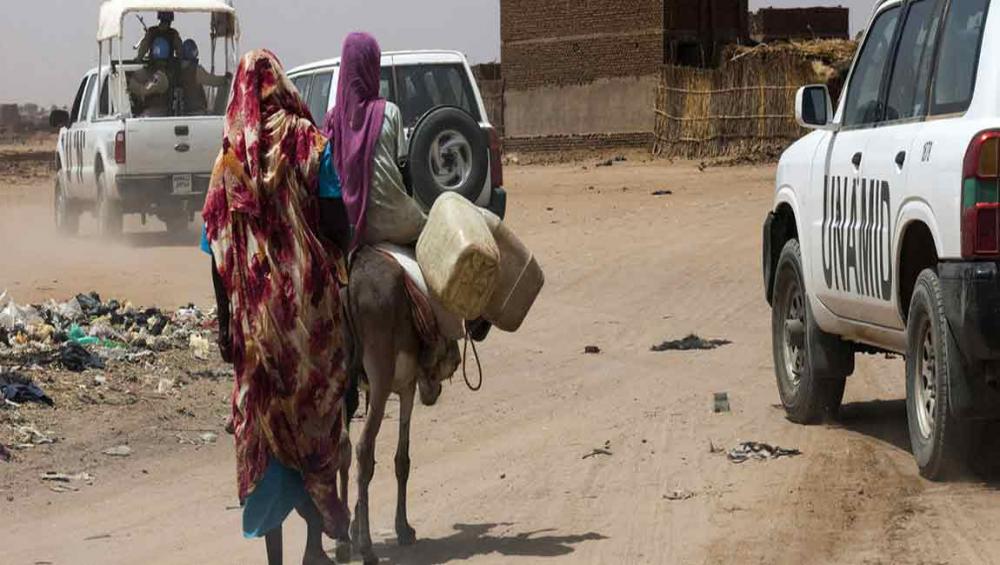Just Earth News | @JustEarthNews | 15 Mar 2018

Hamid Abdulsalam/UNAMID
New York: While the security situation in Sudan’s Darfur region remained stable, the causes of the conflict – and their related consequences – have been largely unaddressed, the head of the African Union-United Nations peacekeeping mission said Wednesday, calling on holdout armed groups to sign the foundational 2011 peace agreement without delay.
“That would be the only way the people of Darfur, and indeed the international community, could have any realistic hope for the achievement of durable peace in Darfur,” Jeremiah Mamabolo, the Joint Special Representative and the head of the AU-UN Hybrid Operation in Darfur (UNAMID), told the Security Council.
In particular, he urged the Council to use its leverage to have Abdul Wahid al Nur, who leads a faction of the Sudanese Liberation Army, join the peace process.
Addressing the 15-member body via video-conference from El Fasher, Mr. Mamabolo said conditions in Darfur are not the same as in 2003, when the conflict began.
Aside from sporadic fighting in Jebel Marra, there is a general absence of war, a reality reflected in UNAMID’s adjusted mandate and posture, now in its second phase of reconfiguration.
Since January, he said, some military, police, and civilian personnel have been redeployed to strengthen Jebel Marra Task Force operations.
He said the Force is organized in two sectors: The Jebel Marra Task Force, with headquarters in Zalingei, and the State Stabilization Assistance Force, covering areas outside the former’s operation area. Phase II reconfiguration also entails reduction in the number of military personnel, from 11,305 to 8,735; police from 2,888 to 2,500; and civilian staff from 2,918 to 2,760.
While it is too early to assess the impact on the overall security and civilian protection situation in areas where UNAMID has withdrawn under its phase I reconfiguration, he said UNAMID continued to engage with the Government to overcome access restrictions.
In some areas of Darfur, intra and inter-communal clashes persisted, albeit at a reduced scale, and instability persisted in internally displaced person camps in Kalma, Hassa Hissa and Hamadiya, where clashes are mainly fuelled by longstanding unresolved socioeconomic and political issues at the root of Darfur’s conflict landscape over the years.
He said that significant resources are needed for post-conflict reconstruction, urging the Council to ensure they are mobilized apace with the mission’s drawdown.